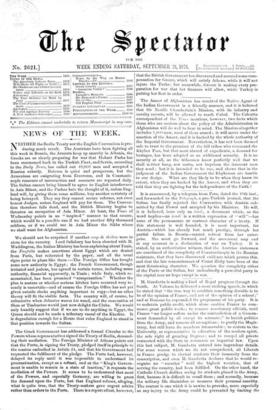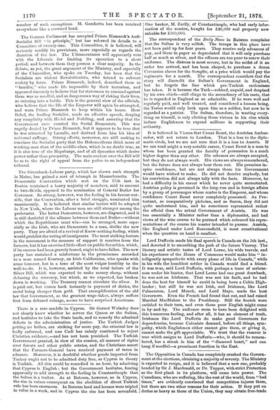M. Gambetta is making a kind of Royal progress through
the South. At Valence he delivered a most striking speech, in which he stated that " the true way to establish something durable is to be of the opinion of France, and not of the opinion of a school ;" and at Romans he expounded the programme of his party. It is to maintain public credit, which alone enables France to com- mence great public works ; to remove reactionary officials, until France "no longer suffers under the contradiction of a Govern- ment demanded by all except its servants ;" to banish politics from the Army, and remove all exemptions ; to purify the Magis- tracy, but still leave its members irremovable ; to restore to the University, as representative iu education of the modern spirit, the sole right of granting Degrees ; and to compel all priests connected with the State to reverence an impartial law. Upon this last subject, M. Gambetta entered into imprudent details. For some reason which we do not comprehend, all Liberals in France grudge to clerical students their immunity from the conscription, and even M. Gambetta declares that he would re- cognise no " vocation" until the highest vocation, that of serving the country, had been fulfilled. On the other hand, the Catholic Church dislikes seeing its students placed in the Army, first, because it is difficult to recall them ; and secondly, because the military life diminishes or menaces their personal sanctity. The contest is one which it is unwise to provoke, more especially as any injury to the Army could be prevented by limiting the
number of such exemptions. M. Gambetta has been received everywhere like a crowned head.































